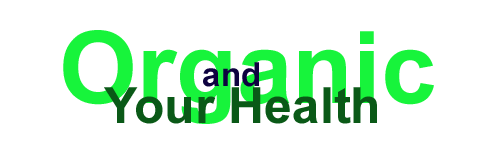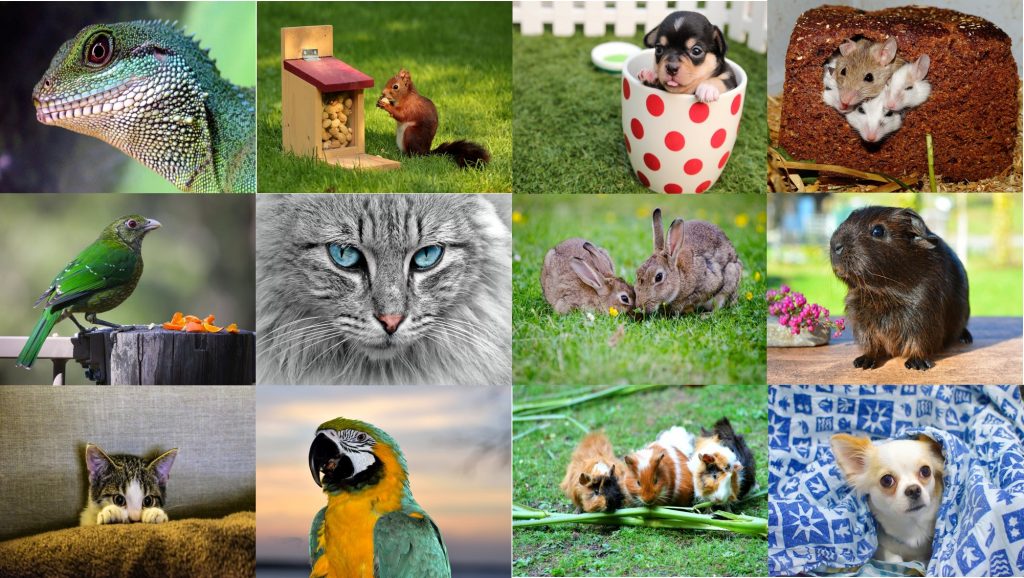
Why organic pet foods?
In the past ten years, demands for high-quality pet foods with enhanced nutrition have increased tremendously. A focus on ingredients in natural pet food has resulted in the production of human-grade pet foods, grain-free pet foods, grass-fed and free-range pet foods, exotic proteins pet foods, ancient grain and plant-based protein alternatives pet foods. None of these has any legal definition and authorities have not given them any certification. Because of the high price of organic foods and a lack of specific regulation and supply issues, organic pet foods make up a very small part of the pet food market. But increasingly, it is expected that in the future, organic pet foods will claim a much higher share of the market.
Why organic pet-care products?
Pet-care products included all non-food pet supplies like:
Grooming products, flea care products, clean-up products, cat litter, pet collar, dog leash, supplements, etc.
The sustainability practices of the companies who make them, ensure that eco-friendly or environmentally friendly products standards are met and that the products are produced to an organically certified level.
Organic pet foods and organic/eco-friendly pet-care products are both important for our health and the sustainability of the environment for the next generation.
Are organic pet foods/products healthier than conventional pet food products?
There are many potential benefits of organic pet foods still to be proven by scientists, some of which are :
No Animal By-Product, lesser chances of ailments and allergies, longer Life expectancy, healthier lifestyle, fewer digestive disorders, higher levels of energy and healthy weight.
Nowadays, you can find organic or ecolabel grade products like:
Hypoallergenic dog collar, hemp dog leash, hemp collar, organic dog shampoo, hemp dog toys, organic dog toys, GMO free dog food, holistic pet food, organic canned dog food, organic puppy food etc.
Organic and Pets
Organic pet foods must meet strict related regulations to be certified. “Organic” has been legally defined for human foods by the USDA and refers to the way the ingredients are grown, harvested and processed.
Pet food companies can currently use the term “organic” if they follow the same rules that are applied to human foods. Grains, fruits and vegetables are grown with techniques that ensure no synthetic chemicals are introduced into the soil or the groundwater and that livestock are raised on a healthy diet without the use of growth hormones. Organic foods should be free of pesticides, added growth hormones, synthetic fertilizers, antibiotics, by-products and bio-engineering.
Dog food packaging may display the official USDA organic seal using the following guidelines:
- If the content is 100% organic, it may display the seal and the “100% organic” claim.
- If at least 95% of the content is organic by weight (excluding salt and water), it may display the seal.
- If at least 70% of the content is organic, the package may state that it is “made with organic ingredients” and it can list up to three of those ingredients on the front of the package, but it cannot display the seal.
- If less than 70% of the content is organic, the package can list the organic ingredients on the information panel, but it cannot use the word organic and it cannot display the seal.
The international organic or ecolabel seals (logos) that you may see on the organic pet products are as follows:
Organic pet Logos / Seals: | |
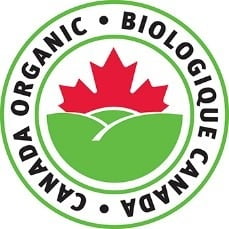 | Canada Organic (Biologique Canada) The Canada Organic seal, also known as Biologique Canada, is Canada’s official national organic seal which is issued by the Canadian Food Inspection Agency and is for products grown using organic agricultural practices. |
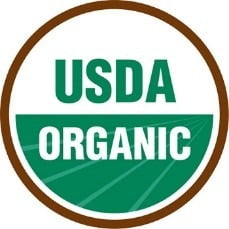 | United States Department of Agriculture (USDA / NOP) Organic United States Department of Agriculture (USDA) Organic is the USA official national organic seal for products grown using organic agricultural practices. It is managed by the USDA National Organic Program (NOP) and is accepted globally. |
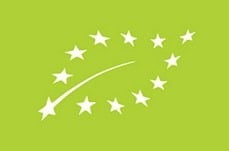 | EU Organic The EU Organic seal is the official European organic farming seal and is managed by the European Commission. It applies to products grown in EU member countries using organic agricultural practices. |
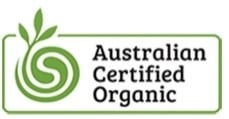 | Australian Certified Organic (ACO) Australian Certified Organic (ACO) is a seal and certifying body that provides organic certification for Australian products grown using organic agricultural practices. |
Ecolabel pet food Logos / Seals: | |
 | Certified Sustainable Seafood (MSC) Certified Sustainable Seafood is a globally accepted ecolabel for seafood and seafood products. The seal, issued by the Marine Stewardship Council (MSC), ensures that seafood originates from a sustainable fishery and has a verified chain-of-custody. The MSC is a member of the ISEAL Alliance. |
